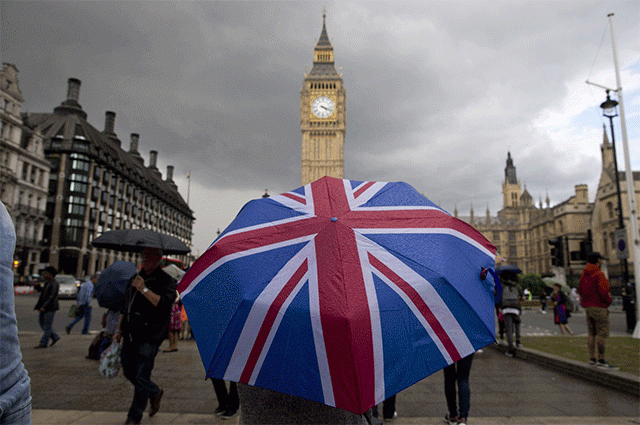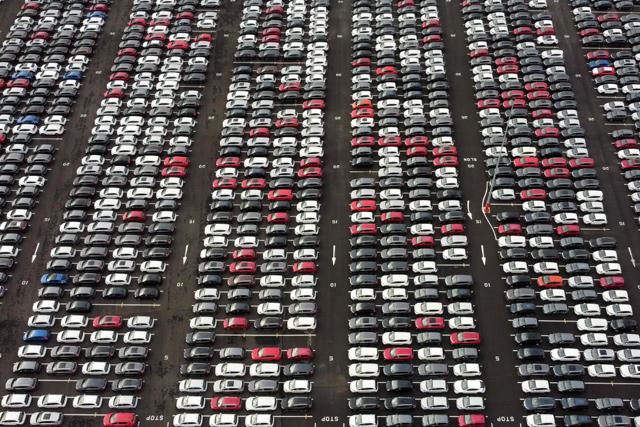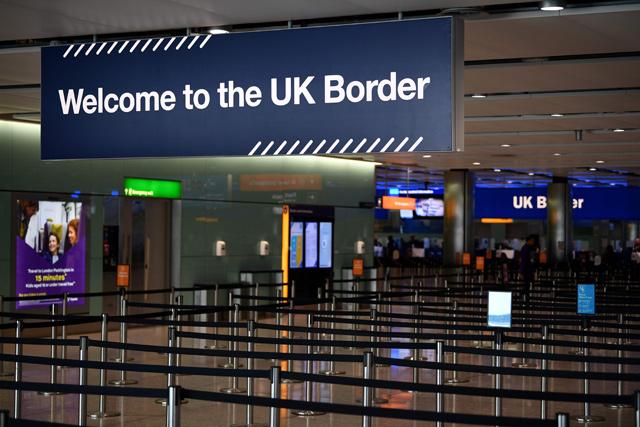You are here
EU, UK poised for Christmas Brexit trade deal
By AFP - Dec 24,2020 - Last updated at Dec 24,2020

In this file photo taken on June 25, 2016 A pedestrian shelters from the rain beneath a Union flag themed umbrella as they walk near the Big Ben clock face and the Elizabeth Tower at the Houses of Parliament in central London on June 25, 2016, following the pro-Brexit result of the UK's EU referendum vote (AFP photo)
BRUSSELS — Brussels and London were putting the final touches to a Christmas Eve trade deal on Thursday, seeking to cushion the economic blow of Britain's imminent departure from the bloc after a half-century of partnership.
Prime Minister Boris Johnson and European Commission chief Ursula von der Leyen had hoped to announce the accord on Wednesday after 10 long months of cross-Channel wrangling over how to ensure fair trade as separate sovereign powers.
But the debate on how to attribute fishing rights in UK waters emerged as the final stumbling block once again, sending negotiators back into intense overnight discussions dealing with quotas line by line, species by species.
"Hopefully Brexit for the first time in many, many months can provide us with some good news this Christmas Eve, later on today — that's the expectation," Irish Foreign Minister Simon Coveney told RTE television in Dublin, as EU capitals waited for news.
Britain formally left the EU in January after a deeply divisive referendum in 2016, the first country to split from the political and economic union that was created in the aftermath of World War II.
Coveney, a veteran of the Brexit battles that erupted after the vote, said a briefing of a working party on fish that had been due in Brussels had “also been postponed until later on today”.
“So clearly they’re still negotiating and still trying to finalise a deal,” he said, as European officials in Brussels warned that any announcement was being pushed back by detailed haggling over quotas for EU crews in UK waters.
“There is a fight over the numbers, and that is a bad sign,” one European source said, while another added that “negotiations are still not finished”.
The delays came after European officials had confidently told journalists on Wednesday afternoon that both sides were “in the final phase” of ironing out the 2,000-page pact.
Diplomatic sources said member states, in particular France, pressed the Commission to go back to the British camp to seek specific guarantees.
At stake is Europe’s share of the 650 million-euro ($793 million) annual catch of fish in British waters, and how to divide these quotas between species and geographical zones — always a painstaking negotiation even between EU members.
‘Huge concessions’
Britain has been seeking a steep cut of more than a third to the EU share of the haul, phased in over three years. Europe’s northern fishing powers — France, Denmark, Ireland, The Netherlands and Belgium — might accept a 25 per cent cut over six years.
A senior French official told AFP late on Wednesday that Britain had made “huge concessions”, but apparently this was not enough to clinch the deal — even if several British newspaper front pages celebrated what they saw as Johnson’s victory.
The deal, if it is confirmed, would come just days before Britain is set to leave the EU’s single market at the end of the year and would spare the two sides from trade tariffs.
An agreement — which would still need to be translated and tidied up by lawyers — could be approved provisionally before the cut-off date and then scrutinised by EU lawmakers in the new year to avoid a cliff edge.
Britain has been in a transition period since its formal departure from the now 27-member EU in January, still trading under EU laws.
Transport chaos
After months of negotiations between exhausted senior officials, the focus in the talks had shifted since Monday to cross-Channel calls between Johnson and von der Leyen.
Brussels was ready to negotiate until the end of the year — or even “beyond”, as EU negotiator Michel Barnier suggested on Tuesday — but time was running out for any deal to be provisionally applied.
Failure to reach a deal would mean tariffs on cross-Channel trade in food and goods, exacerbating the economic shock of a return to a customs border after 47 years of integration.
Britain and France experienced a foretaste of what the chaos might look like this week when France abruptly closed its borders to British lorries, trains and planes.
Paris was responding to concerns about a new coronavirus variant spreading in Britain, but the huge queues of trucks and threats of supply shortages were taken as an ominous sign.
Both London and Brussels insist they are ready for a return to tariffs and a customs border — but business groups are sounding the alarm about the possible disruption to come
Related Articles
BRUSSELS — British and EU negotiators embarked on probably their final two-day scramble to secure a post-Brexit trade deal on Sunday, after
BRUSSELS — The European Union gave the green light on Monday to its post-Brexit trade deal with the UK, clearing the way for it to come into
London — EU leaders signed their post-Brexit trade deal with Britain and dispatched it to London on an RAF jet Wednesday, setting their seal


















